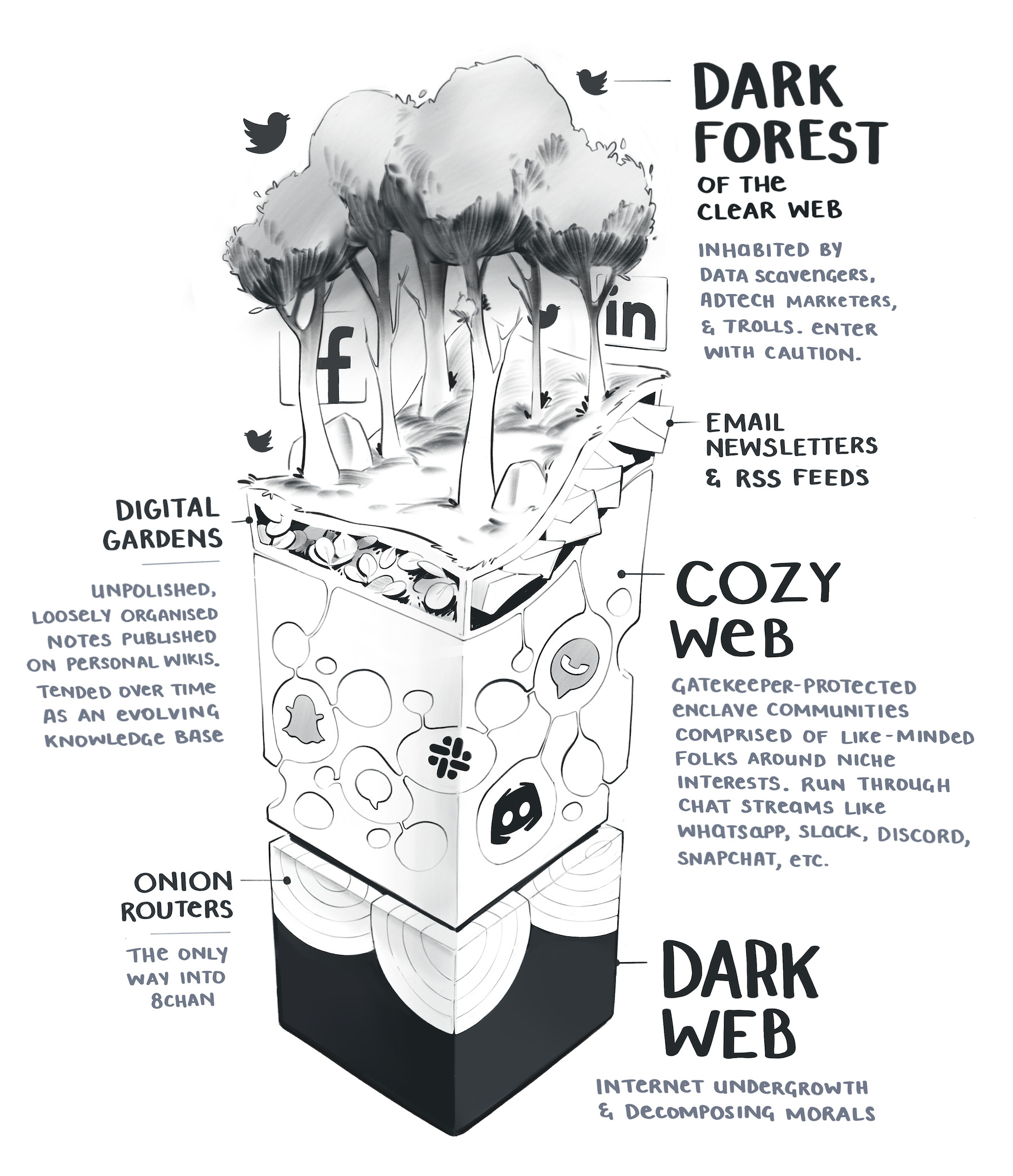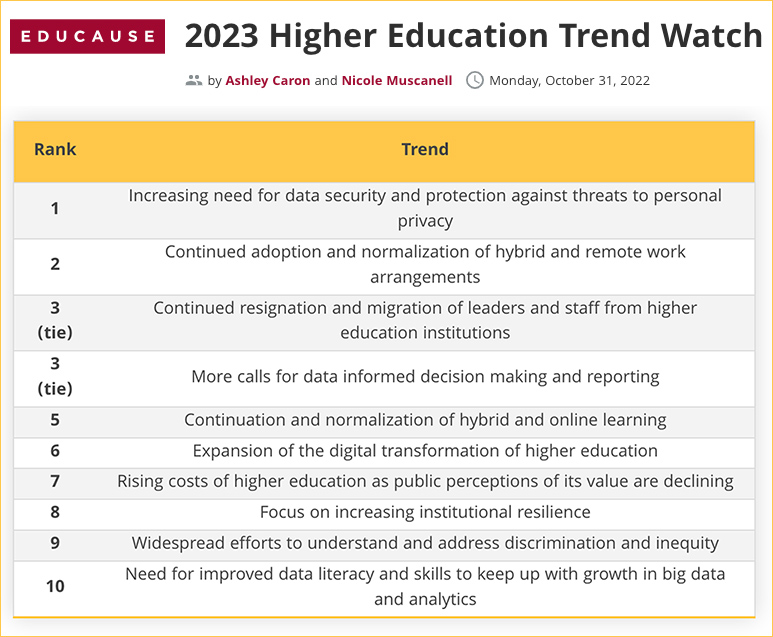Here’s the list of sources: https://t.co/fJd4rh8kLy. The larger resource area at https://t.co/bN7CReGIEC has sample ChatGPT essays, strategies for mitigating harm, and questions for teachers to ask as well as a listserv.
— Anna Mills, amills@mastodon.oeru.org, she/her (@EnglishOER) January 11, 2023
ChatGPT Creator Is Talking to Investors About Selling Shares at $29 Billion Valuation — from wsj.com by Berber Jin and Miles Kruppa
Tender offer at that valuation would make OpenAI one of the most valuable U.S. startups
Here’s how Microsoft could use ChatGPT — from The Algorithm by Melissa Heikkilä
Excerpt (emphasis DSC):
Microsoft is reportedly eyeing a $10 billion investment in OpenAI, the startup that created the viral chatbot ChatGPT, and is planning to integrate it into Office products and Bing search. The tech giant has already invested at least $1 billion into OpenAI. Some of these features might be rolling out as early as March, according to The Information.
This is a big deal. If successful, it will bring powerful AI tools to the masses. So what would ChatGPT-powered Microsoft products look like? We asked Microsoft and OpenAI. Neither was willing to answer our questions on how they plan to integrate AI-powered products into Microsoft’s tools, even though work must be well underway to do so. However, we do know enough to make some informed, intelligent guesses. Hint: it’s probably good news if, like me, you find creating PowerPoint presentations and answering emails boring.
And speaking of Microsoft and AI, also see:
- 7 reasons why Microsoft is winning the AI war — from donaldclarkplanb.blogspot.com by Donald Clark
I have maintained for several years, including a book ‘AI for Learning’, that AI is the technology of the age and will change everything. This is unfolding as we speak but it is interesting to ask who the winners are likely to be.
Donald Clark
The Expanding Dark Forest and Generative AI — from maggieappleton.com by
Proving you’re a human on a web flooded with generative AI content
Assumed audience:
People who have heard of GPT-3 / ChatGPT, and are vaguely following the advances in machine learning, large language models, and image generators. Also people who care about making the web a flourishing social and intellectual space.
That dark forest is about to expand. Large Language Models (LLMs) that can instantly generate coherent swaths of human-like text have just joined the party.
DeepMind CEO Demis Hassabis Urges Caution on AI — from time.com by Billy Perrigo
It is in this uncertain climate that Hassabis agrees to a rare interview, to issue a stark warning about his growing concerns. “I would advocate not moving fast and breaking things.”
…
“When it comes to very powerful technologies—and obviously AI is going to be one of the most powerful ever—we need to be careful,” he says. “Not everybody is thinking about those things. It’s like experimentalists, many of whom don’t realize they’re holding dangerous material.” Worse still, Hassabis points out, we are the guinea pigs.
Demis Hassabis
Excerpt (emphasis DSC):
Hassabis says these efforts are just the beginning. He and his colleagues have been working toward a much grander ambition: creating artificial general intelligence, or AGI, by building machines that can think, learn, and be set to solve humanity’s toughest problems. Today’s AI is narrow, brittle, and often not very intelligent at all. But AGI, Hassabis believes, will be an “epoch-defining” technology—like the harnessing of electricity—that will change the very fabric of human life. If he’s right, it could earn him a place in history that would relegate the namesakes of his meeting rooms to mere footnotes.
But with AI’s promise also comes peril. In recent months, researchers building an AI system to design new drugs revealed that their tool could be easily repurposed to make deadly new chemicals. A separate AI model trained to spew out toxic hate speech went viral, exemplifying the risk to vulnerable communities online. And inside AI labs around the world, policy experts were grappling with near-term questions like what to do when an AI has the potential to be commandeered by rogue states to mount widespread hacking campaigns or infer state-level nuclear secrets.
AI-assisted plagiarism? ChatGPT bot says it has an answer for that — from theguardian.com by Alex Hern
Silicon Valley firm insists its new text generator, which writes human-sounding essays, can overcome fears over cheating
Excerpt:
Headteachers and university lecturers have expressed concerns that ChatGPT, which can provide convincing human-sounding answers to exam questions, could spark a wave of cheating in homework and exam coursework.
Now, the bot’s makers, San Francisco-based OpenAI, are trying to counter the risk by “watermarking” the bot’s output and making plagiarism easier to spot.
Schools Shouldn’t Ban Access to ChatGPT — from time.com by Joanne Lipman and Rebecca Distler
Excerpt (emphasis DSC):
Students need now, more than ever, to understand how to navigate a world in which artificial intelligence is increasingly woven into everyday life. It’s a world that they, ultimately, will shape.
We hail from two professional fields that have an outsize interest in this debate. Joanne is a veteran journalist and editor deeply concerned about the potential for plagiarism and misinformation. Rebecca is a public health expert focused on artificial intelligence, who champions equitable adoption of new technologies.
We are also mother and daughter. Our dinner-table conversations have become a microcosm of the argument around ChatGPT, weighing its very real dangers against its equally real promise. Yet we both firmly believe that a blanket ban is a missed opportunity.
ChatGPT: Threat or Menace? — from insidehighered.com by Steven Mintz
Are fears about generative AI warranted?
And see Joshua Kim’s A Friendly Attempt to Balance Steve Mintz’s Piece on Higher Ed Hard Truths out at nsidehighered.com | Comparing the health care and higher ed systems.
I spent New Years building GPTZero — an app that can quickly and efficiently detect whether an essay is ChatGPT or human written
— Edward Tian (@edward_the6) January 3, 2023
What Leaders Should Know About Emerging Technologies — from forbes.com by Benjamin Laker
Excerpt (emphasis DSC):
The rapid pace of change is driven by a “perfect storm” of factors, including the falling cost of computing power, the rise of data-driven decision-making, and the increasing availability of new technologies. “The speed of current breakthroughs has no historical precedent,” concluded Andrew Doxsey, co-founder of Libra Incentix, in an interview. “Unlike previous technological revolutions, the Fourth Industrial Revolution is evolving exponentially rather than linearly. Furthermore, it disrupts almost every industry worldwide.”
I asked ChatGPT to write my cover letters. 2 hiring managers said they would have given me an interview but the letters lacked personality. — from businessinsider.com by Beatrice Nolan
Key points:
- An updated version of the AI chatbot ChatGPT was recently released to the public.
- I got the chatbot to write cover letters for real jobs and asked hiring managers what they thought.
- The managers said they would’ve given me a call but that the letters lacked personality.
.
I mentor a young lad with poor literacy skills who is starting a landscaping business. He struggles to communicate with clients in a professional manner.
I created a GPT3-powered Gmail account to which he sends a message. It responds with the text to send to the client. pic.twitter.com/nlFX9Yx6wR
— Danny Richman (@DannyRichman) December 1, 2022
A class action lawsuit has been filed against several companies that use image-generating AI with datasets gained amorally. The outcome could affect how AI art is regulated in the future.#AI #ML #futurism #IntelligenceFactory #digitaltransformation #DXhttps://t.co/XhzLWc9Qxt pic.twitter.com/nWBB12aFMb
— Matthew Lamons (@mlamons1) January 15, 2023
So excited to share this quick ChatGPT Teacher Prompt Guide that is aligned with CESE’s What Works Best Framework. Download it for free with the link in my bio ? #chatgpt #edutech #wwb #whatworksbest pic.twitter.com/9qio14Mgzf
— Andrew Herft (@HerftEducator) January 7, 2023











